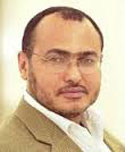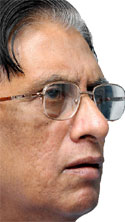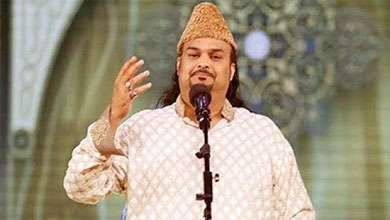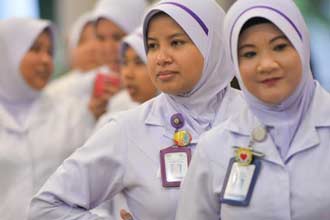Photo: Gov't plans to allow only female doctors to assist in childbirth
Malaysian Gov't Plans To Allow Only Female Doctors to Assist In Childbirth
Yazidi Victim Demands Genocide Trial for Islamic State Leaders
Volleyball In Iran: A Litmus Test for Women’s Rights
Muslim Brotherhood Statement on Release of Seven Damietta Girls Monday
Compiled by New Age Islam News Bureau
---------
Two Women Appointed As Shariah High Court Judges in Malaysia
June 28, 2016
Two women have been appointed as judges of Malaysia’s Islamic Shariah High Court for the first time in the history of the judiciary of the Muslim-majority country.
Noor Huda Roslan, 40, and Nenney Shuhaidah Shamsuddin, 41, received their official letters of appointment from Selangor’s Sultan Sharafuddin Idris Shah during a ceremony at the Istana Bukit Kayangan.
Roslan and Shamsuddin said it was a positive development for the judiciary.
Shamsuddin said Malaysia had ratified the UN’ Convention on the Elimination of All Forms of Discrimination Against Women and the appointments were in line with empowering women.
Shariah High Court, also known as Syriah High Court, refers to Sharia law in Islamic religious law and deals with exclusively Islamic laws, having jurisdiction upon every Muslim in Malaysia.
“I believe more women will be appointed to take charge of important responsibilities in the future,” she said.
Both women graduated with a bachelor’s degree in Islamic studies and later studied Psychology (Counselling) and International and Comparative Legal Studies respectively.
Shuhaidah was a senior Shariah officer at the Attorney-General’s Chambers while Huda was a chief Registrar at the Selangor Shariah Judiciary Department.
indianexpress.com/article/world/world-news/2-women-appointed-as-shariah-high-court-judges-in-malaysia-2880781/
--
Malaysian Gov't Plans To Allow Only Female Doctors to Assist In Childbirth
28.06.2016
The government plans to allow only female doctors to assist in childbirth at public hospitals, Deputy Health Minister Dr Hilmi Yahaya said.
However, the plan is on hold because there are not enough female doctors in the obstetrics and gynaecology line, Hilmi told reporters in Balik Pulau yesterday.
"There are more female doctors (than male doctors) in public service but not many female doctors are interested in obstetrics and gynaecology.
"So we have to wait until there are more trained female doctors in this line," Bernama reported Hilmi as saying, after distributing Hari Raya hampers and contributions to 50 patients at Hospital Balik Pulau.
In 2013, the Health Ministry received a petition to only allow female doctors and nurses to work in the labour room and maternity ward, in the interest of the aurat (modesty) of Muslim patients.
The petition, signed by 6880 people, urged the ministry to incentivise women to take up obstetrics and gynaecology, and raise awareness among medical professionals of the aurat requirements during childbirth.
It is generally accepted that a Muslim woman can show only her face and hands to members of the opposite gender that she is not related to.
Some Muslim women have also opted to wear "birthing pants", which cover the mother's thighs, ankles and knees during childbirth to fulfil this obligation.
malaysiakini.com/news/346875
--
Yazidi victim demands genocide trial for Islamic State leaders
June 28, 2016
GENEVA: Nadia Murad, a slight, soft spoken Yazidi woman from Iraq, endured a three-month nightmare as a sex slave of the Islamic State (IS) group.
After her harrowing escape with the help of a fake religious ID nearly two years ago, Murad has a message for world leaders striving to crush the extremists: IS leaders must stand trial for genocide.
“Genocide must be recognised,” the 23-year-old told AFP through a translator in Geneva.
As Iraq wages an offensive against IS, with government forces retaking full control of the militant bastion of Fallujah on Sunday, UN investigators are making a renewed push for justice for the militants’ victims.
The Yazidis, neither Muslim nor Arab, are an ancient religious minority of more than half a million people concentrated near the Syrian border in northern Iraq.
The IS group has said it despises the Kurdish-speaking group because Yazidis are not “people of the book”, meaning their faith does not adhere to the theological tradition that begins with Abraham of the Old Testament and extends through the Koran.
In 2014, IS militants massacred Yazidis in Sinjar, forcing tens of thousands of them to flee, and capturing thousands of girls and women as spoils of war.
The UN Commission of Inquiry (COI) for Syria earlier this month said it had compiled evidence proving that IS was continuing a genocide against the Yazidis.
With Iraqi leaders hailing their recent victories over IS in Fallujah and weighing a new operation to flush them out of their northern strongholds like Mosul, Murad insisted that the need for accountability should not be forgotten.
She was taken by IS from her home village of Kocho near Iraq’s northern town of Sinjar in August 2014 and brought to Mosul.
“The first thing they did was they forced us to covert to Islam,” she said. “After conversion, they did whatever they wanted to do.”
In a December speech at the UN Security Council, Murad recounted her so-called “marriage” to one IS captor, who subjected her to horrific abuse.
“I was not able to take any more rape and torture,” she told the council, so she decided to flee.
On the run in Mosul, Murad said she was terrified that no one would take her in, but she ultimately found shelter with a Muslim family in the city.
“They made me an Islamic ID,” she said, which she used to cross the border into Iraqi Kurdistan.
There she lived in a camp for displaced people and, with the support of the Yazidi welfare organisation Yazda, relocated to Germany, where she now lives with her sister.
The United Nations and several Western powers first suggested last year that the IS assault on the Yazidis amounted to a premeditated, genocidal effort to exterminate an entire community.
The evidence presented by the COI earlier this month was more conclusive.
COI member and former international prosecutor Carla del Ponte described the commission’s report as “a roadmap for prosecutions”.
Supported by witness testimony, the COI found that IS “sought to erase the Yazidis through killings, sexual slavery, enslavement, torture and inhuman and degrading treatment”.
Referring heinous, mass crimes to the International Criminal Court often meets obstacles in the UN Security Council for political reasons.
But COI members expressed hope that the Yazidi case could be investigated by The Hague-based ICC, because the IS group has no public political support.
Murad, one of 376 people and organisations nominated for this year’s Nobel Peace Prize, broke down in tears as she told a UN audience the extent to which her people felt abandoned by the international community.
Speaking at a Human Rights Council event in Geneva last week, she said that anger would intensify if the IS attempt to exterminate the Yazidis did not lead to prosecutions.
“For you to regain the trust of the Yazidis will take a lot of work,” she said.
tribune.com.pk/story/1131758/yazidi-victim-demands-genocide-trial-islamic-state-leaders/
--
Volleyball in Iran: A litmus test for women’s rights
27.06.2016
An international volleyball tournament in the Iranian capital has thrown into sharp relief a debate in international sporting associations on how to deal with nations that restrict women’s rights as athletes and/or spectators.
How the Federation Internationale de Volleyball (FIVB) evaluates next month’s World League in Tehran is likely to shape debate on how international sports should handle countries guilty of violations of women’s and human rights.
At stake in the debate is whether international sports associations should refuse hosting rights to nations who restrict women’s rights or use the awarding of tournaments as a means of fostering domestic pressure for the lifting of restrictions. The debate focuses on Iran, which unlike Saudi Arabia, the only other country that bans women from attending male sporting events and men from watching women’s competitions, is eager to host international tournaments.
FIVB, in contrast to world soccer body FIFA which refuses to award hosting rights to Iran, has argued that a refusal would penalize players and male rather than female fans in the Islamic republic.
FIVB has moreover suggested that forcing women’s entry into Iranian stadiums was likely to provoke violence against women wanting to exercise their right. The fact that awarding rights would provoke violence would seem to favour a refusal to award hosting rights to Iran rather than accept a reality that is imposed in part by threats of violence.
Iranian backtracking on earlier promises to lift the ban on women for international volleyball tournaments like the World League in Tehran and an earlier Asian Football Confederation (AFC) tournament in Iran further calls into question whether engagement instead of boycott is the more effective approach.
The glass is half full and half empty in the debate. The dilemma is built into the charters of international sports associations like FIVB that champion anti-discrimination but restrain them becoming embroiled in political and religious issues. Both sides in the volleyball debate sum up aspects of Iran’s reality and the volleyball federation’s experience in the country to argue their positions.
Proponents of engagement note that Iran has proven in the battle over its nuclear program that it is willing and able to sustain sanctions and unlikely to bend easily when penalized. Iran, they argue, drove a hard bargain when it finally agreed to serious negotiations.
For their part, opponents of engagement charge that Iran has repeatedly backtracked on promised concessions. At stake, the opponents say, is given the failure of the engagement approach the need for international sports associations to uphold principles and their commitment to values of equality and universal human rights.
Refusal to demonstrate that commitment, they say, would reduce their adherence to those principles to lip service and turn it into a farce. It would also hand a victory to those who threaten violence, a striking move in a world that vows not to be intimidated by indiscriminate political violence by the likes of groups like the Islamic State.
FIVB, which has been pushing for Iranian concessions not only during the World League but also more permanently in Azadi Stadium, Iran’s flagship sporting facility in Tehran, says it will evaluate the effectiveness of its engagement in the wake of next month’s tournament.
The FIVB first backed away from its earlier threat to boycott Iran when it last year went ahead with its Beach Volleyball tournament on Kish Island, a Muslim-tinted Las Vegas style resort developed before the 1979 Islamic revolution, despite Iran’s backtracking on its consent to women’s attendance of matches. Iranian officials justified their reversal by pointing to threats by religious groups that blood would be spilt if women were allowed to attend.
The FIVB secured a women’s section in the stadium despite the threats and women believed to be relatives of Iranian volleyball federation executives rather than from the public attended a couple of matches. Women fans who travelled to Kish to watch matches were barred entry.
The situation in Tehran next month is likely to be no different as supporters of President Hassan Rouhani, widely viewed as an advocate of reduced social controls, and Iranian hardliners battle over Iran’s future in the wake of the lifting of the nuclear-related international sanctions. The fact that the battle over women’s unfettered right to attend sporting rights is part of a larger struggle in Iran significantly reduces the FIVB’s chances of influencing Iran.
Hard line threats of violence designed as much to intimidate their opponents as to attempt to keep Iranian moderates in line are not restricted to sports.
Major General Qasem Soleimani, the head of Iran’s Islamic Revolutionary Guard Corps (IRGC) Quds Force, in an unprecedented response to this week’s likely deportation by Bahrain of Shiite Sheikh Isa Qassim, warned that the Gulf state had crossed a red line.
Bahrain stripped Sheikh Isa at the beginning of this week of his Bahraini nationality. The move against Sheikh Isa was part of a renewed crackdown on Bahrain’s majority Shiites by the Gulf island’s minority Sunni rulers.
General Soleimani said the it would spark “the beginning of a bloody uprising” that would lead to the “annihilation” of the country’s “bloodthirsty regime.”.
The warning by General Soleimani, who commands IGRC forces in Syria that support the regime of President Bashar al-Assad and who played a key role in shaping Shiite militias confronting the Islamic State in Iraq, was directed as much at Bahrain as it was at those in Mr. Rouhani’s government who want to reduce tensions between Iran and Saudi Arabia.
Ironically, Bahrain’s move against Sheikh Isa serves the purpose of Saudi Arabia which has been seeking to strengthen Iranian hardliners as part of its struggle with Iran over regional dominance in the Middle East. Like when it executed a prominent Saudi Shiite cleric in January, Saudi Arabia hopes that strengthened Iranian hard liners will obstruct Mr. Rouhani’s US-backed efforts to return Iran to the international fold.
The Iranian power struggle and its role in the covert war between Iran and Saudi Arabia constitutes a high stakes battle that is far beyond the paygrade of internationals sports associations like the FIVB. With Mr. Rouhani and Iranian moderates having bigger fish to fry, it precludes the FIVB from getting any real foot on the ground in its effort to secure women’s rights. Under the circumstances, the FIVB and international sports associations are best served by upholding principles and standing on the side lines until the dust settles and new opportunities arise.
playthegame.org/news/news-articles/2016/0187_volleyball-in-iran-a-litmus-test-for-womens-rights/
--
Muslim Brotherhood Statement on Release of Seven Damietta Girls Monday
28.06.2016
The steadfastness and the will of Damietta Province girls triumphed over the will of the tank and the junta after more than 420 days in military prisons... a tribute to the women of the January 25 (2011) Revolution, their resilience, and their families who stand firm behind them.
However, their acquittal and release will not erase the shame of jailing them in the first place. That will continue to be a curse on the military junta for their crimes, which afflicted more than 1,500 girls and women over the past 3 years – since the start of the murderous treasonous military coup.
A tribute to the men and women of the 2011 Revolution, for their persistent protests and selfless devotion, especially over the past few days, and all Egyptians on social networking websites, who blogged in support of the values of truth and freedom.
Soon, the people will exact retribution from each and every official and henchman guilty of crimes against Egyptian women.
ikhwanweb.com/article.php?id=32581
New Age Islam,
Islam Online,
Islamic Website,
African Muslim News,
Arab World News,
South Asia News,
Indian Muslim News,
World Muslim News,
Womens in Islam,
Islamic Feminism,
Arab Women,
Womens In Arab,
Islamphobia in America,
Muslim Women in West,
Islam Women and Feminism














